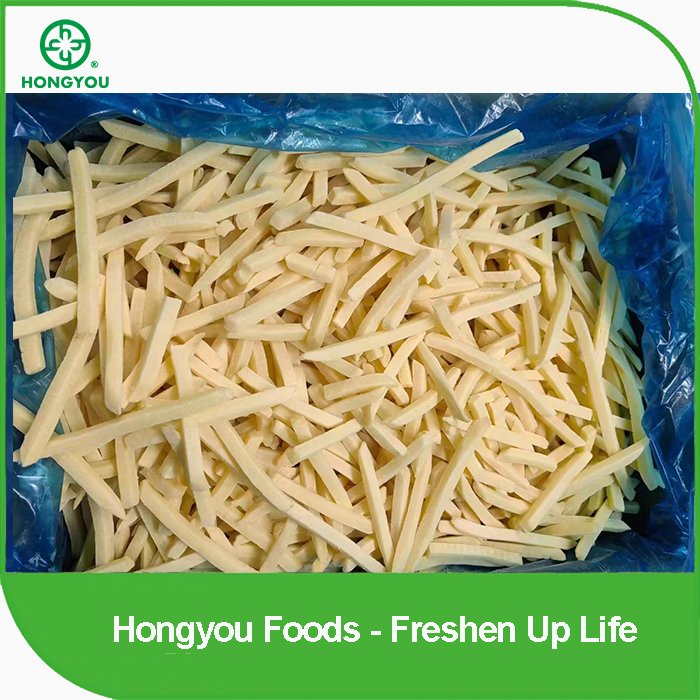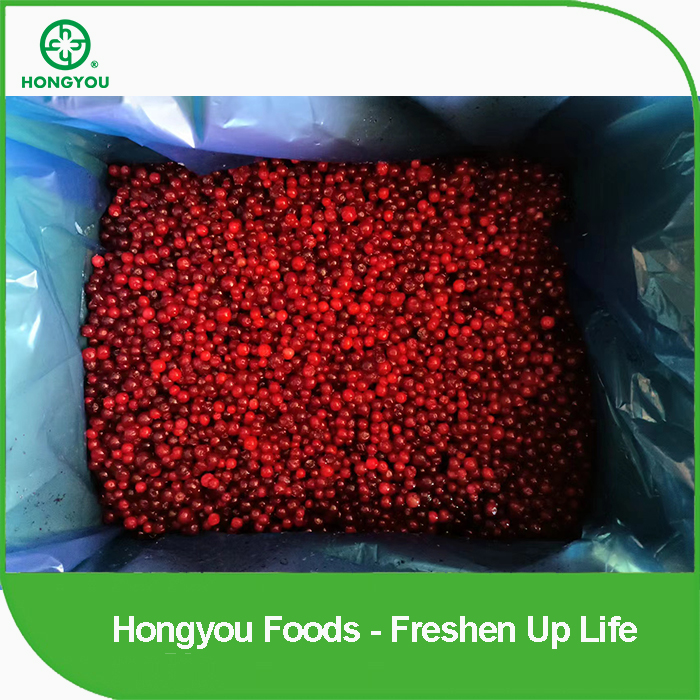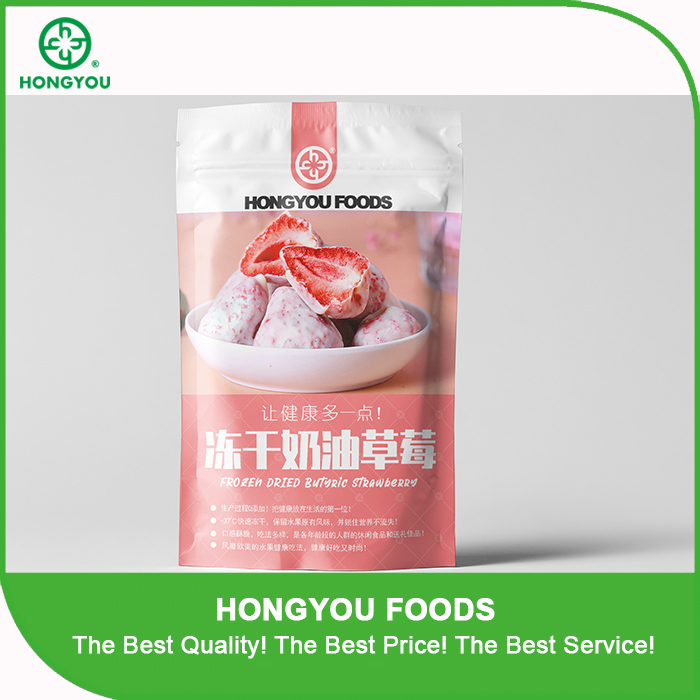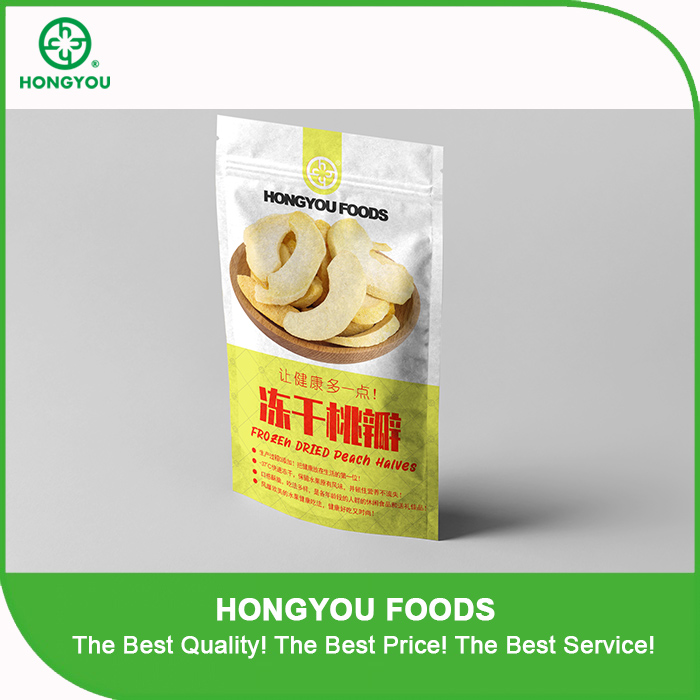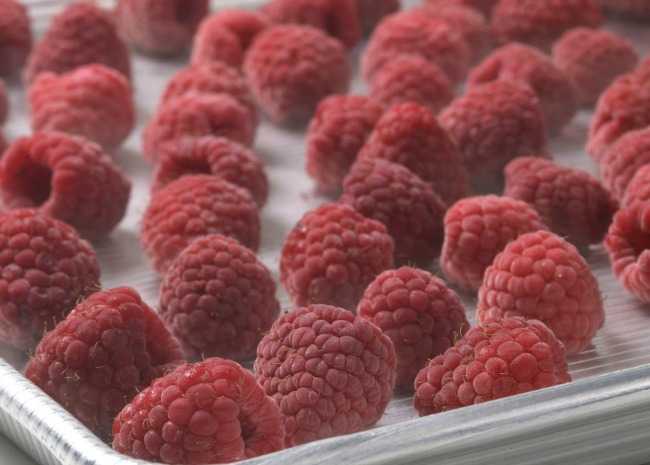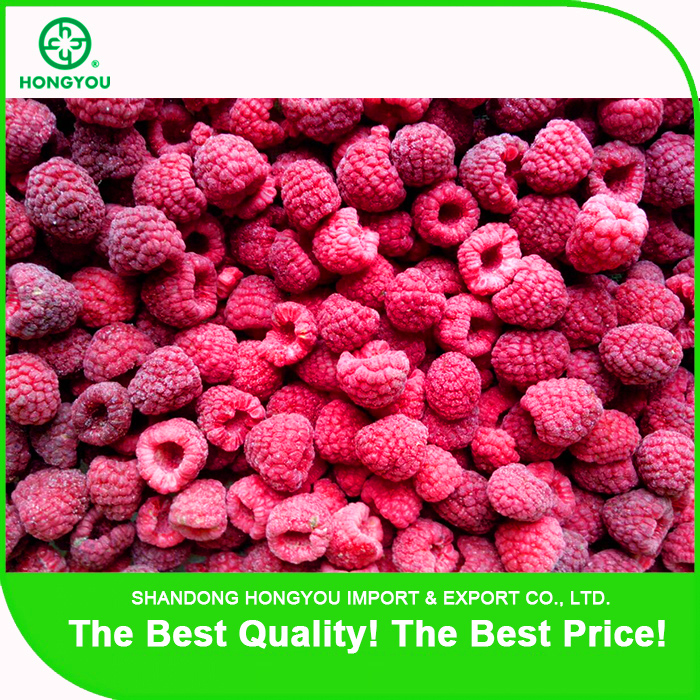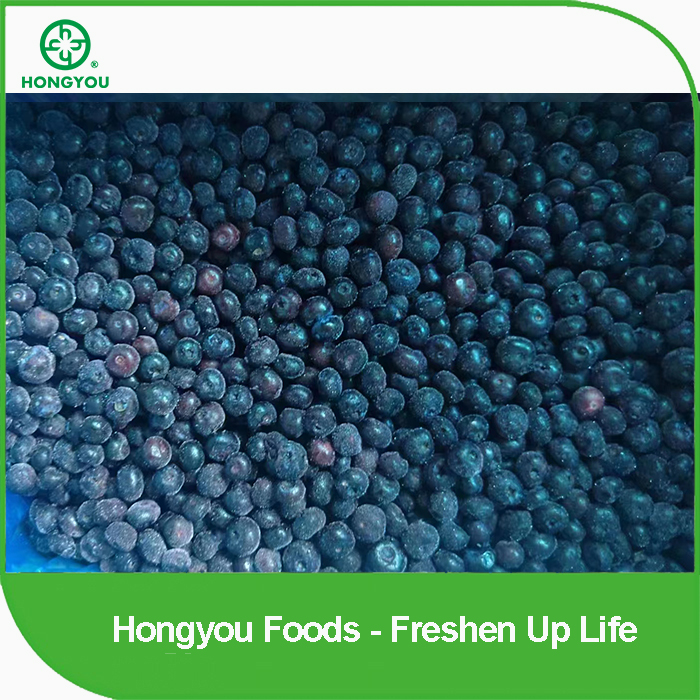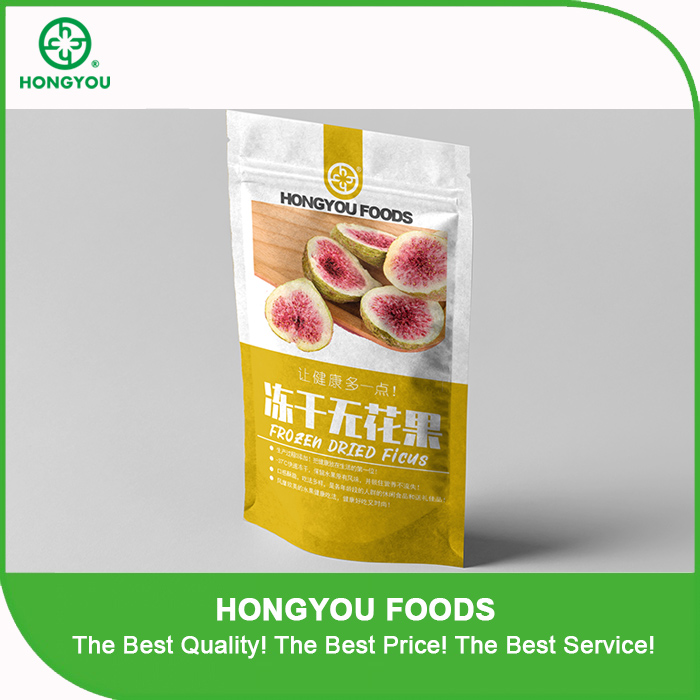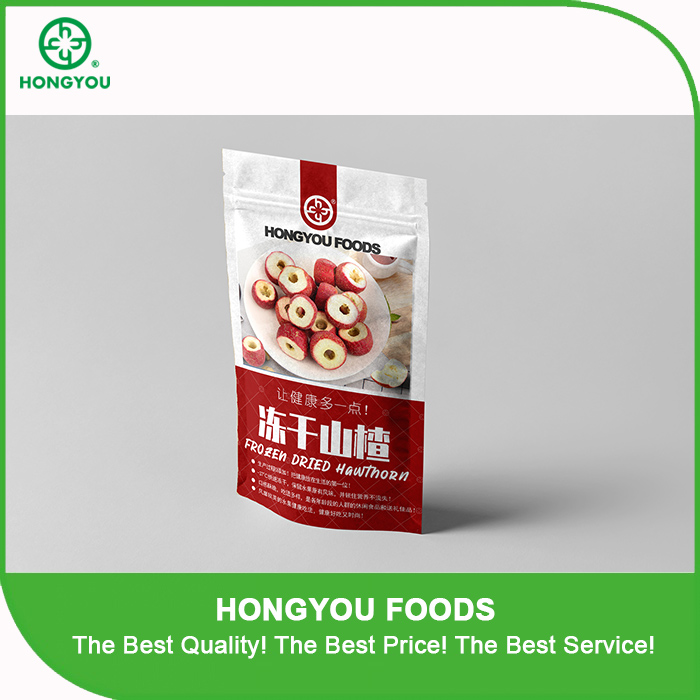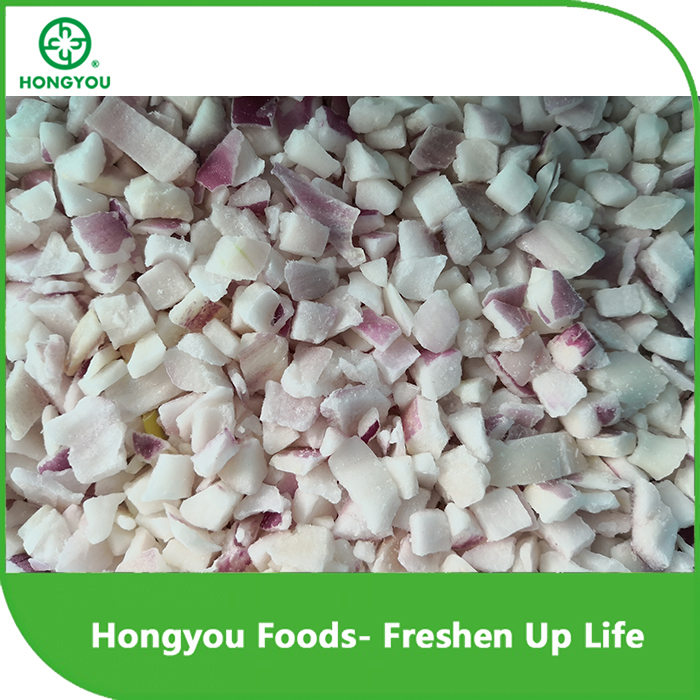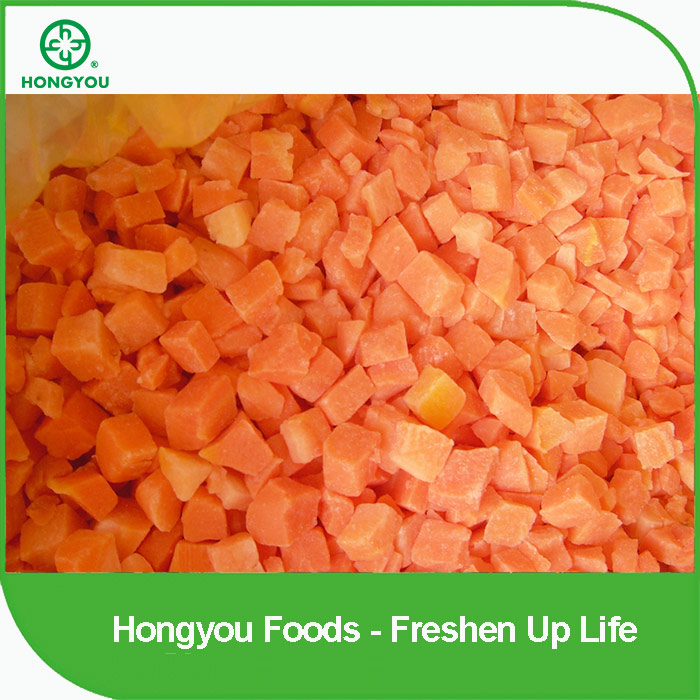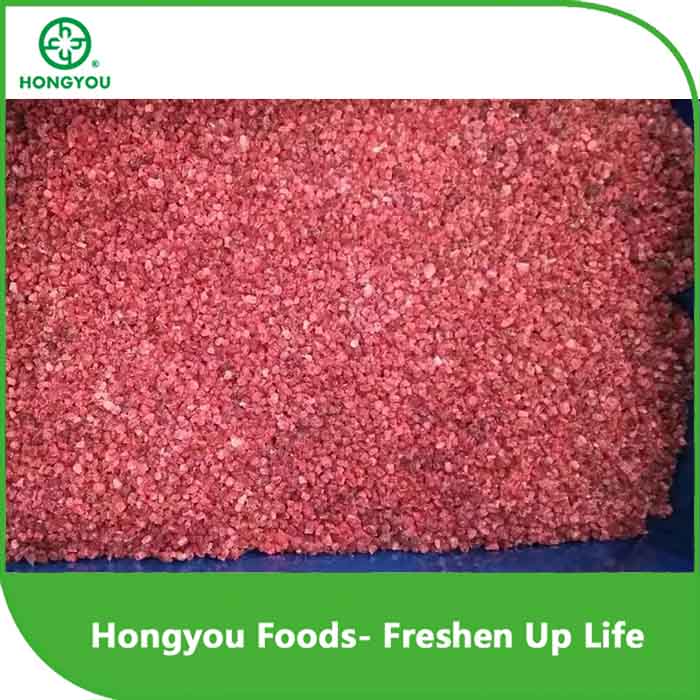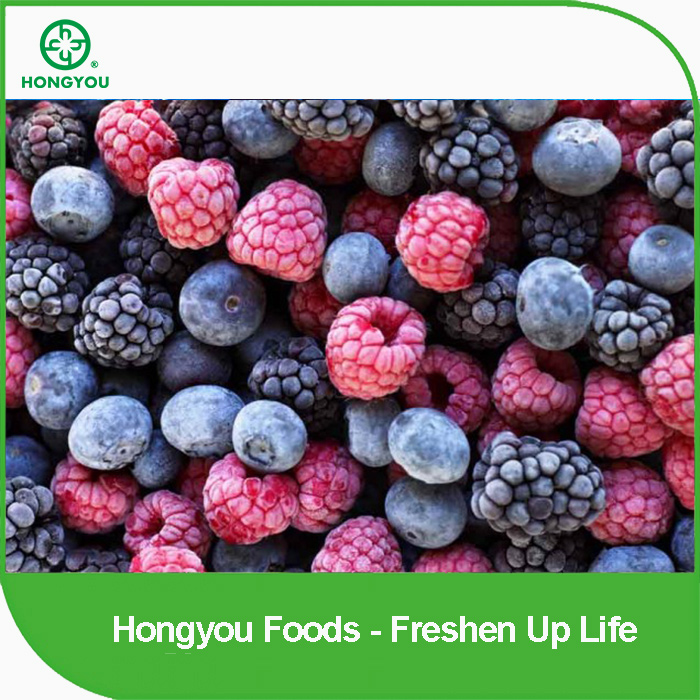Hongyou Foods-How to Freeze Fruits and Vegetables to Preserve Freshness
When summer gives you heaps of fresh fruits and vegetables, freeze them to enjoy throughout the year. It's easy! Just follow these tips to preserve summer's bounty for months to come.
Quick Tips: How to Freeze Fruits and Vegetables
- Choose produce that's ripe and unblemished.
- Before freezing vegetables, blanch and shock vegetables by boiling them briefly, drain, then plunge into ice water. Dry thoroughly.
- Freeze fruits and vegetables quickly by spreading them in a single layer on a rimmed sheet pan.
- Store in air-tight containers or freezer bags. Be sure to date the packages.
- Fill containers to the top and remove as much air as possible from freezer bags.
- Vegetables that hold up well to cooking (corn, peas) generally freeze well.
- For better texture, use frozen fruit in recipes before it’s completely thawed.
- Fruits and veggies freeze best at 0-degrees F or colder.
- Store frozen fruits for about a year; vegetables, about 18 months. (Storing longer is fine, but the quality may decline.)
Freezing Fruits
- Wash fruits and sort for damaged fruit before freezing. Some fruits do best with a sugar or sugar-syrup preparation. Blueberries, currants, and cranberries do fine without sugar.
- Here’s a trick for freezing delicate berries like strawberries or raspberries: Arrange them in a single layer on a baking sheet. Once frozen, transfer to a plastic freezer bag or container. You can also prepare delicate berries with sugar or sugar syrup.
- For fruits that tend to brown, like apples, peaches, nectarines and apricots, treat with ascorbic acid (Vitamin C). Look for the powdered form in health food stores, drugstores, and some grocery stores in the vitamin aisle. To make an ascorbic acid wash: Dissolve 1/2 teaspoon of ascorbic acid powder (or finely crushed vitamin C tablets) in 3 tablespoons water. Sprinkle this mixture over the cut fruit. An acceptable substitute: Slice the fruit and dip the slices in an acidulated water bath -- about one quart water plus a tablespoon of lemon juice -- before drying and freezing.
Freezing Vegetables
The best vegetables for freezing are low-acid veggies. When freezing vegetables, first blanch them briefly in boiling water. Then quickly submerge the veggies in ice water to prevent them from cooking. Dry thoroughly on paper towel-lined sheet pans. Why blanch? Blanching prevents enzymes from damaging color, flavor, and nutrients. Blanching also destroys unkind microorganisms that might be lingering on the surface of vegetables. Pack vegetables snuggly to avoid air contact.
Packing Produce for the Freezer
- The key to packing fruits and veggies for freezing is to keep moisture inside the package and air outside. Contact with air can cause changes in flavor and color. Pack fruit and vegetables in air-tight containers or moisture-proof, heavy-duty freezer bags, and force out as much air as possible. Wrap freezer bags in heavy-duty foil and seal with freezer tape. Stay away from plastic sandwich bags, which are not heavy-duty enough.
- A few hours before adding food to the freezer, set the freezer to its coldest setting. And don't overload the freezer (it will slow the freezing process).
Thawing Frozen Fruits and Vegetables
Most vegetables can go directly from freezer to boiling water, though corn does best when allowed to thaw a bit first. Fruits are best when allowed to thaw at room temperature. Delicate berries can turn mushy when thawed completely, so consider eating them before they're thoroughly thawed, such as in smoothies or as a topping for ice cream or yogurt.
When frozen, the water in fruits and veggies expands, causing ice crystals to puncture and break cell walls. As a result, some fruits and veggies tend to get mushy when thawed. To reduce the amount of cellular damage, freeze fruits and veggies as quickly as possible: colder temperatures produce smaller ice crystals, which do less damage to cell walls. The "mushy factor" is also why we recommend eating frozen fruits before they have completely thawed.
Copyright@http://dish.allrecipes.com/how-to-freeze-fruits-and-vegetables/

 ENGLISH
ENGLISH





